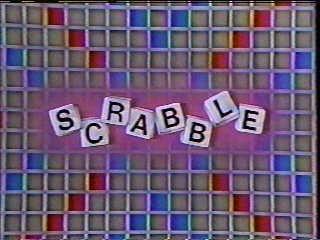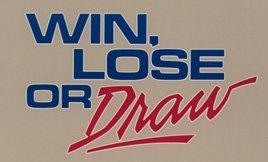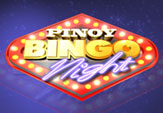This article needs additional citations for verification .(July 2009) (Learn how and when to remove this template message) |
| Lingo | |
|---|---|
 | |
| Genre | Game show |
| Created by | Harry de Winter |
| Presented by | Michael Reagan (1987–88) Ralph Andrews (1988) Chuck Woolery (2002–07) Bill Engvall (2011) |
| Starring | Dusty Martell (1987–88) Margaux MacKenzie (1988) Stacey Hayes (2003–04) Shandi Finnessey (2005–07) |
| Narrated by | Randy Thomas (2002–03) Stacey Hayes (2003-04) |
| Country of origin | Canada United States |
| No. of episodes | 130 (1987–88) 345 (2002–07) 40 (2011) [1] |
| Production | |
| Running time | 22–26 minutes |
| Production company(s) | Ralph Andrews Productions (1987–88) Bernstein-Hovis Productions (1987–88) Laurelwood Entertainment (2002–2007) IDTV International (2002–2004) All3Media International (2005-2007) ZOO Productions (2011) Game Show Network Originals (2002-2004) |
| Distributor | ABR Entertainment Company (1987–88) All3Media International |
| Release | |
| Original network | Game Show Network |
| Original release | September 28, 1987–March 25, 1988 August 5, 2002–June 29, 2007 June 6, 2011–August 1, 2011 |
| Chronology | |
| Related shows | Lingo (UK version) |
| External links | |
| Website | |
Lingo is an American television game show with multiple international adaptations. Three Lingo series have aired in the United States. The first was aired in daily syndication from September 28, 1987 until March 25, 1988, and taped at BCTV in Burnaby, British Columbia. A revival/reboot of the series debuted on Game Show Network (GSN) on August 5, 2002 and ended in 2007 after running for a total of six seasons. [2] A slightly reworked version of the 2002 series debuted on GSN on June 6, 2011 and ended its run on August 1 of the same year. [1]

A game show is a type of radio, television, or stage show in which contestants, individually or as teams, play a game which involves answering questions or solving puzzles, usually for money or prizes. Alternatively, a gameshow can be a demonstrative program about a game [while usually retaining the spirit of an awards ceremony]. In the former, contestants may be invited from a pool of public applicants. Game shows often reward players with prizes such as cash, trips and goods and services provided by the show's sponsor prize suppliers.
Broadcasting syndication is the license to broadcast television programs and radio programs by multiple television stations and radio stations, without going through a broadcast network. It is common in the United States where broadcast programming is scheduled by television networks with local independent affiliates. Syndication is less of a practice in the rest of the world, as most countries have centralized networks or television stations without local affiliates; although less common, shows can be syndicated internationally. The three main types of syndication are "first-run syndication", which is programming that is broadcast for the first time as a syndicated show and is made specifically to sell directly into syndication; "off-network syndication", which is the licensing of a program that was originally run on network TV or in some cases, first-run syndication ; and "public broadcasting syndication".

CHAN-DT, virtual channel 8, is a Global owned-and-operated television station located in Vancouver, British Columbia, Canada, which serves as the West Coast flagship station of the network. The station is owned by Corus Entertainment. CHAN maintains studio facilities located on Enterprise Street in the suburban city of Burnaby, and its transmitter is located atop Mount Seymour.
Contents
- 1987 version
- Main game
- Rule changes
- No Lingo bonus round
- GSN versions
- 2002–2007
- 2011
- Broadcast history
- Episode status
- International versions
- References
- External links
The show's format combined the structure of the game of chance known as bingo with a word guessing game; contestants took turns guessing words and tried to guess enough of them to fill in enough spaces on a five-by-five card to form a line.

A game of chance is a game whose outcome is strongly influenced by some randomizing device, and upon which contestants may choose to wager money or anything of monetary value. Common devices used include dice, spinning tops, playing cards, roulette wheels, or numbered balls drawn from a container.

In the United States, Bingo is a game of chance in which each player matches numbers printed in different arrangements on 5×5 cards which the numbers the game host (caller) draws at random, marking the selected numbers with tiles. When a player finds the selected numbers are arranged on their card in a row, they call out "Bingo!" to alert all participants to a winning card, which prompts the game host to examine the card for verification of the win. Players compete against one another to be the first to have a winning arrangement for the prize or jackpot. After a winner is declared, the players clear their number cards of the tiles and the game host begins a new round of play.


















